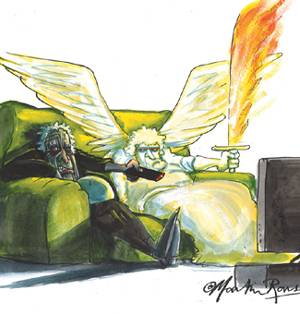What, another one? By whom this time? And where from? Matters aren't helped by a publishers notice that this is a philosophical analysis. What indeed might that be? As part of a Routledge series on philosophers, Jonathan Lear, an American philosopher and psychoanalyst has written a critical appreciation of Freud's accomplishment. To me it seems not so much a philosophical analysis as Lear's deeply felt and accurate account of Freud's clinical experience, and the theory Freud made of it.
Modern psychoanalysis as it has developed since Freud's death in 1938 can be described as post-Freudian. In the post-World War II period, Freud's classical mechanics were revisited to include new experience. Freud's understanding (theory) of his clinical experience has needed to be modified to include the discovery, first proposed by the Scottish analyst Ronald Fairbairn, that contrary to Freud's formulation, the human being is not pleasure seeking but relationship seeking. This fundamental modification has proceeded piecemeal, back-and-forth across the Atlantic Ocean in a context of hostile resistance to change from within the confines of classical psychoanalysis. Lear has given us a good look at Freud from a definite perspective.
Particularly recommended are his discussion of dreams and his fine analysis of how Freud's thinking about the psychoanalytic 'transference' changed in response to his increasing clinical experience. Lear does very well to explain a fundamental modification in Freud's clinical work. In the early days Freud concentrated on exploring unconscious motivations with a pick and shovel approach. The unconscious would be unearthed by the therapist's unerring unrelenting interpretations. With the failure of Freud's treatment of Dora, well described by Lear, we see Freud withdrawing from a 'gotcha' concentration on what the patient doesn't say to a more therapeutic listening to what the patient does say, and allowing the transference to develop in a way that can be looked at together. As Lear points out: "Freud here officially renounces his role as an Inspector Poirot of the unconscious. He is no longer on the prowl for the key to some mystery hidden in the unconscious; more importantly he is no longer cross-examining patients as though they are hostile witnesses." The therapist no longer says: (Aha!) "You're now treating me just like Herr K," which serves a defensive function for the therapist and shuts off the exploration. Instead the therapist says: "You seem to be treating me as though I am going to use you. Is that your feeling? If so, in what ways am I going to take advantage?". It would be good if contemporary analysts would give up the defensive game of 'gotcha' that is still being played in too many 21st century consulting rooms.
There are many upsides in Lear's account of classical psychoanalysis. But there are also downsides. In eating problems, we have the age-old story of orality but not fat as a feminist issue. In the story of Anna O we have Breuer abandoning his patient, Anna, but we don't have the detailed scholarship of Albrecht Hirschmuller who locates this story as deriving from Freud's mind, not as a historical fact. In a discussion of Oedipus we have the ancient competition, erotic, with the parent of the same sex but no discussion of the vicissitudes of triangular relationships, of the significance of the mother-daughter relationship or of the son-hating Laius complex. And in the glossary we have Laplanche and Pontalis but we don't have Rycroft's classic, A Critical Dictionary of Psychoanalysis.
This is definitely worthwhile for anyone wanting a serious briefing on the undoubted accomplishment of classical Freudian psychoanalysis. The reader needs to be aware, however, that classical Freudian psychoanalysis is but one orientation in modern psychoanalysis.

